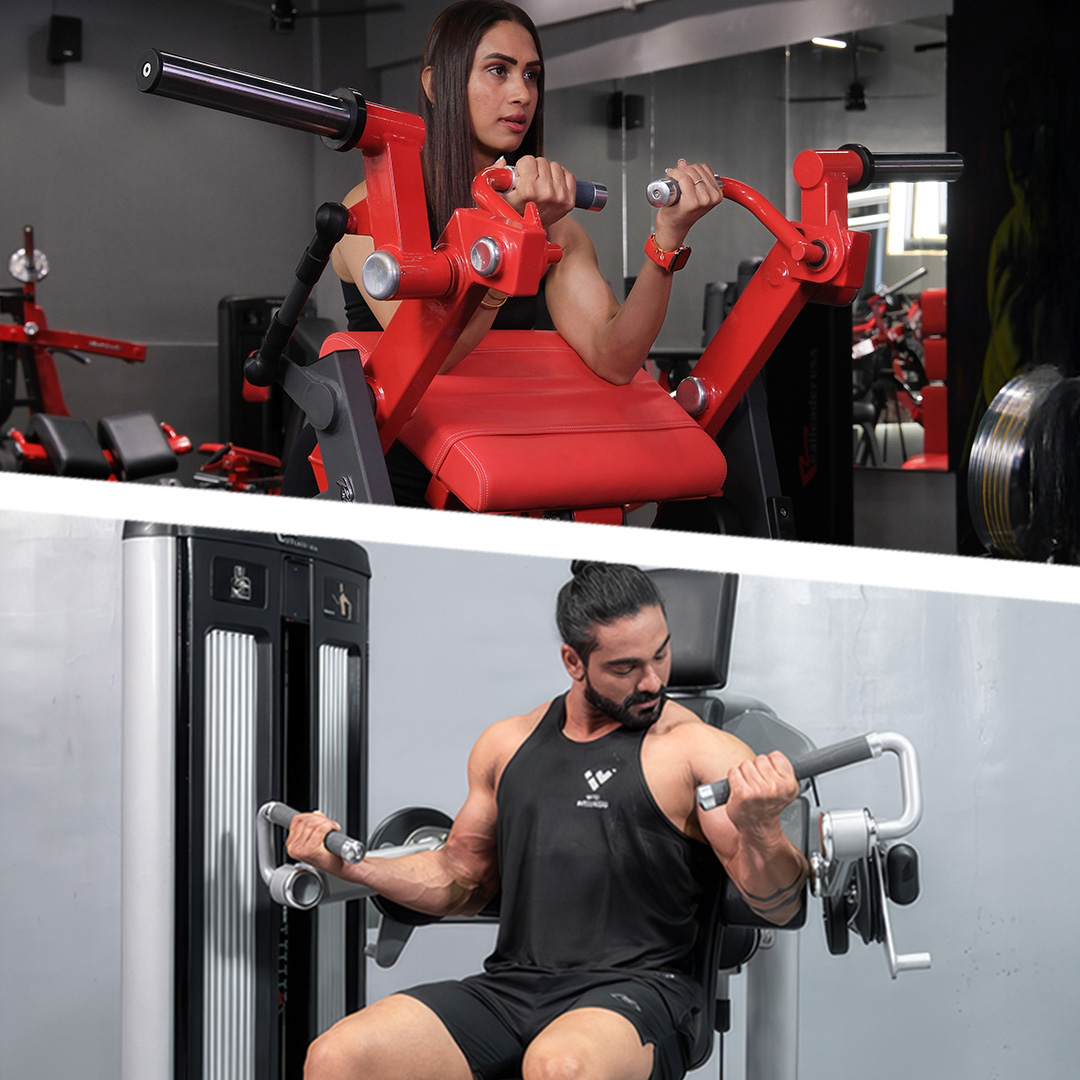Nutrition and fitness go hand-in-hand, one of the most important and obvious connections between these two is that following a good nutritional diet can give you more energy, thus encouraging your fitness routine. When considered together, fitness and nutrition can have a positive impact on your life to a large extent. The diet can be altered and followed as per your fitness goals and body type under the guidance of a nutritionist or a dietitian. Let us walk you through the answers to some of the commonly asked questions around fitness and nutrition.
Why is nutrition important for fitness?

What you eat, how much you eat and when, has a huge impact on your energy level and how well you recover from a workout. Whether it’s playing football, swimming, jogging, or walking, active people need to eat a nutritious, balanced diet to fuel their body that can adi their workouts/physical activities.
Focusing on healthy food intake as a primary fitness goal along with working out, can help reduce body fat, feel more confident, and reduce risk of diseases. Many physicians are teaching the importance of healthy eating habits and lifestyles as a way to improve overall health by reducing obesity and related disease.
What you eat, acts as a supporting element in your fitness goals.
What diet should be followed by a physically active person?

An active person engages in more physical activity as compared to a non-active person and thus needs a diet that provides enough energy in the form of carbohydrates, fats, essential protein, vitamins and minerals.
Let’s break down these essential nutrients:
- 55-60% of calories from carbohydrates
- About 30% of calories from fat
- And remaining about 10-15% from protein.
All of the above translates into eating a variety of foods every day such as grains, vegetables, fruits, beans, lean meat, as well as low-fat dairy products. The base of the diet should come from carbohydrates in the form of starch and sugar.
Don’t forget fluids such as plenty of water, and fresh juices regularly, are also important to the winning combination. Remember, dehydration can hamper even the most physically fit individual from performing his/her best.
Are carbohydrates important for active people?
Yes carbohydrates in some portions are needed by the body for a physically active individual.
When starch or sugar is eaten, the body changes them all to glucose, which is the only form of carbohydrate used directly by muscles for energy.
Carbohydrates in any form are digested and ultimately changed to glucose:
- Carbohydrates are in the form of starch (in vegetables and grains)
- Sucrose (table sugar)
- Fructose (found in fruits and juices)
- Lactose (milk sugar)
The body uses this glucose in the blood for energy; in fact in some active people, eating or drinking carbohydrates during exercise helps maintain their blood glucose and energy levels.
Focusing on getting enough carbohydrates everyday by eating a nutritious, balanced diet that is high in carbohydrates and low in fat with lots of different foods, is the best way to ensure plenty of energy for exercise.
You can also consult a dietitian or nutritionist for effective results of carbohydrate intake.
Does a person need extra protein or protein supplements to build muscles?

Muscles develop from training and exercising in the right amount, certainly some amount of protein is needed to help build the muscles, but a nutritious, balanced diet that includes:
- 2-3 servings from the meat/bean/egg group (6-7 ounces total)
- 2-3 servings of dairy products will supply all of the protein that the muscles need.
Extra servings of protein supplements do not necessarily assist in muscle development, ensure to consult a dietitian for doing so. However, biologically, protein cannot be stored in the body and any excess will be burned for energy or stored as body fat.
What should a person eat before, during and after exercise?
Balanced diet provides plenty of energy and nutrients, needed to reach your fitness goals. Here are a few tips about eating before, during and after exercise.
Before
- High carbohydrate foods- bananas, bagels or fruit juices. These foods are broken down quickly and provide glucose to the muscles. Researchers have found that eating 1-3 hours before exercise helps keep plenty of blood glucose available for working muscles.
- It is also critical to drink plenty of water before exercise to keep your muscles well hydrated.
During
- Perspiration and exertion during workout sessions deplete the body of fluids necessary for an optimal performance and this leads to dehydration, hence drinking plenty of water, at least half a glass of every 20 minutes of exercise is necessary to keep your body hydrated. Adding a teaspoon of sugar, or some fruit juice or a small amount of powdered drink mix flavors to plain water can encourage fluid intake.
- For rigorous, athletic training, health drinks may be recommended by your trainer and dietitian. h some sugar in it will fuel and water to the muscles being exercised.
After
- If the exercise was strenuous and lasted a long time, then consuming foods and beverages high in carbohydrates right after exercise will replenish glycogen stores in your body.
- Irrespective of the intensity of the exercise, it’s important to drink plenty of water and eat a sufficient amount of nutritious, balanced meals that have lots of carbohydrate rich foods such as grains, pastas, potatoes, vegetables and fruits.
What are the different types of bodies?
Every individual’s body is different, in shape, body-mass composition, height, etc. Biologically, these various bodies can be broadly categorized into three types:
Ectomorph:
These types of bodies are long and lean with very little body fat and little muscle. They don’t gain weight easily, and hence these can be recognized as tall, slim bodies with longer limbs with very high metabolism. In this type of body the production of myozenin is low so it is very difficult to perform intense workouts easily. However, with proper training, gradually, the body can be trained for effective workout.
Endomorph:
This is the opposite of the above body types, that is short and heavy with narrow shoulders, heavy hips and tummy. These bodies can gain weight fast and they struggle to lose weight. However, when trained well, they have good strength and can be good as powerlifters.
Mesomorph:
These types of body are balanced between fat and muscle, which can easily gain muscle and easily lose weight. They have the ability to achieve their desired body and fitness goals faster.
What type of exercise and diet do people with each of these body types need to follow?
It is always recommended to consult a trainer and a dietitian for timely results, however, listed below are some of the basic exercises and diets that people with each of these body types can follow:
Ectomorph:
As they have a good metabolism rate, they do not need a lot of cardio, instead they should concentrate more on weight training, focusing on compound movements (squats, bench press, push ups etc.). Exercises with 6-10 repetition each would be ideal, with longer rest between sets. 3-4 strength training sessions per week can be considered.
When it comes to diet, 600-800 calories should be appropriate, consisting of a good amount of protein, and sufficient amount of carbohydrates.
Endomorph:
Individuals with this type of body need High Intensity Interval training(HIIT). 4-5 sessions per week would be recommended to gain best results.
Heavy to moderate strength training that is a mixture of compound and isolation workout can be performed. Cardio exercises should be included to get the heart pumping before weight training.
Ideal calories intake should be 1600-1800, with a higher amount of protein and fat but lesser amount of carbohydrate.
Mesomorph:
These individuals are called lucky, because performing moderate paced cardio 3 times a week moderate to heavy lifting can be appropriate. In case of heavy strength training, 4-6 repetition can be performed, and for moderate strength training 15-20 repetition would be good. Their diet should consist of:
2500+ calories, 50% carbohydrates, 35% from protein, and 15% fats.
However, it is always better and safer to consult a nutritionist and a trainer to eat the right food and follow the right fitness regime for your specific body type.
Conclusion
We hope we have answered your questions related to nutrition, diet and fitness through the above answers. Just get going with your health and fitness journey without getting overwhelmed by others’ routine. Take the first step towards a healthy lifestyle, things would gradually start progressing the way you want for your body, according to your fitness goals!







